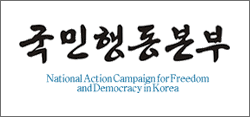*이 글은 미국 라이스 대학의 제임스 베이커 연구소 사이트에서 퍼온 것이다.
Weapons of Mass Destruction and the Middle East:
The View from Israel
By Ze’ev Schiff
The Isaac and Mildred Brochstein Fellow in Peace and Security
James A. Baker III, Institute for Public Policy
Rice University
in Honor of Yitzak Rabin
March 2003
PDF Version (Entire Document) - 141k
--------------------------------------------------------------------------------
NORTH KOREA
Of the countries now promoting nuclear proliferation, the most prominent is North Korea, labeled by President Bush as one of the three countries forming an “axis of evil.” North Korea’s military activity in the Middle East has been growing, beginning with missile development aid to Pakistan and then to Syria, Iran, Libya, and Egypt. North Korea supplies missile engines and parts and assists construction of missile production lines. In the early ’90s, in return for such aid, Pakistan supplied North Korea with nuclear technology. Pakistan’s nuclear aid included development of centrifuges for the production of enriched uranium. Years later, after North Korea’s nuclear weapons project had progressed, it began extending nuclear aid to Middle East countries.
Here, North Korea created a very dangerous precedent. To conceal nuclear activity at home—especially after having reached agreement with the United States in 1994 to replace its nuclear reactors with reactors operated by light water, which does not produce plutonium—North Korea moved part of its nuclear operation to Iran. Thus, two countries of the “axis of evil” cooperate in the nuclear field. It is not unlikely that a similarly secret partnership has been concluded between North Korea and Libya. In Iran, North Korea has focused on setting up uranium-enriching centrifuges; in return, Iran receives a part of the produce of that device, which almost has become operational. The North Koreans also have been given the go-ahead from Tehran to experiment in Iran with their Taepo Dong, an advanced missile engine with a range of up to kms 5000. Here again, the Iranians are getting something for their pains. The Iranian Shihab-3 missile is practically a carbon copy of the North Korean No Dong.
The conclusion is that in the field of WMD, the Middle East cannot be viewed as a separate geographical region. To hinder the development of WMD in the Middle East, it is necessary to deal simultaneously and vigorously with countries like North Korea, which consistently violate their commitments. The problem with North Korea took a turn for the worse on January 10, 2003, when Pyongyang announced its immediate break with Non-Proliferation Treaty (NPT). North Korea’s representatives had previously admitted that their country had a nuclear weapons program and had expelled IAEA inspectors. All this happened in defiance of the North Korean agreement with the United States signed in Geneva in 1994; its agreements with KEDO, the international organization incorporating Japan and South Korea; and the agreement signed with South Korea in December 1991. Under these agreements, Pyongyang is bound to discontinue its plutonium and nuclear weapons production programs in return for the construction of light water reactors in North Korea and the supply of heavy fuel (financed by the U.S., South Korea, Japan, and the European Union.)
The violation of agreements concerning the nuclear issue has become a regular North Korean practice. The implementation of almost every clause signed by Pyongyang always has been fraught with delays and blackmail. Demands often are for money, food, fuel, or “compensation” for alleged damages. In most cases, Pyongyang manages to have its way. For every North Korean compromise, some sort of remuneration needs to be made. Various mediation efforts by former president Jimmy Carter and former defense secretary William Perry have been temporarily successful, but only in return for more concessions to North Korea. Various politicians in South Korea maintain that nuclear weapons provide Pyongyang with a means to extort funds to ease North Korea’s difficult economic situation. This may be true, but it also proves that if that practice works, North Korea would not be in a hurry to give it up. It would hold on to it as long as possible, just as it has been doing for years, and would resort to it regularly in other regions the world over. The North Korean precedent in breaking with the NPT treaty necessarily affects the future of that international treaty as well as the proliferation of nuclear weapons.
The North Korean nuclear problem escalated into a full-blown crisis with Saddam Hussein’s refusal to reveal and remove his weapons of mass destruction, making the danger of war in Iraq more acute. Pyongyang obviously views the preoccupation of the United States and the international community with Iraq as a window of opportunity. The danger is not that North Korea will launch a nuclear strike against the South or against other of its neighbors. The North Korean danger is global and that is how it should be seen.
In recent years, North Korea has contributed to the destabilization of the Middle East, more so, perhaps, than any other country. It has been supplying ground-to-ground missiles to a number of countries in the region. It has started setting up missile production lines in a number of countries such as Syria and Libya. It has extended the range of the missiles, improved their precision and increased the carrying capacity of their warheads. North Korea signed an agreement with Egypt for the delivery of 50 No Dong missile engines (medium range), but this agreement was canceled under pressure from Washington. At the height of the Iraqi crisis, North Korea sold Scud Missiles to Yemen. That consignment was intercepted on its way from North Korea by Spanish and American naval forces. Various intelligence services are convinced that Yemen has procured these missiles in N. Korea for Iraq.
Israel fears that if the North Korean crisis is not settled, Pyongyang would try to form an anti-American coalition in the Middle East comprising Iran, Syria, and Libya. Ten years ago, Korea held informal negotiations with Israel on a possible deal. In return for discontinuing the export of ground-to-ground missiles to the Middle East, Pyongyang demanded a billion dollars to cover the various losses incurred by the cancelled sales. When Washington told Israel to leave the problem to the U.S., Prime Minister Rabin complied, placing Israel in a silent subordinate position. Now, 10 years later, it has become quite clear that the problem of the North Korean missiles in the Middle East and elsewhere has worsened. Now that a North Korean danger to Israel has grown, Israel might seek its own direct contacts, in coordination with Washington, of course. It has done so in its contacts with Russia regarding the latter’s ties with Iran and has done the same in contacts with China.
What Israel fears most is that having already sold missile technology, North Korea would sell nuclear technology as well. If the North Korean crisis deepens, North Korea might be willing to sell fissionable material and parts for the production of nuclear weapons or its expertise in building the kind of subterranean sites it has built at home. A study by the Congressional Reference Service of the Library of Congress (August 2002) states the U.S. perception of the danger succinctly: “The Administration’s fear was that North Korea would have the means to export atomic bombs to other states and possess a nuclear missile capability that would threaten Japan and U.S. territories in the Pacific Ocean.”
TOP
INDEX













 라이스 대학교
라이스 대학교







 트위터
트위터 페이스북
페이스북 네이버
네이버



























